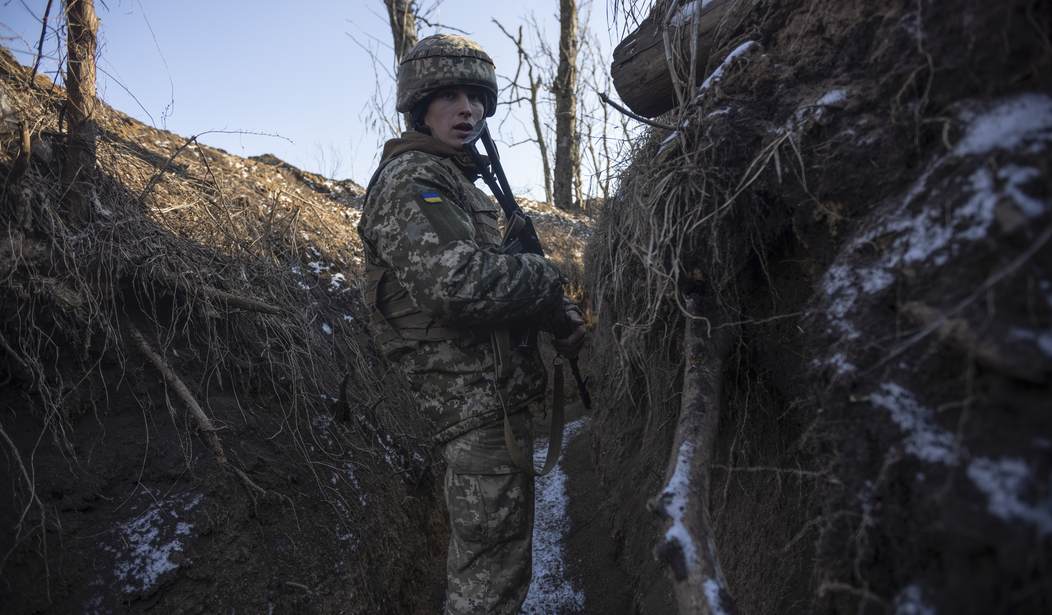The Russian invasion of Ukraine has sent a wave of unease across Eastern Europe, especially in Lithuania, Estonia, and Latvia. The three Baltic States joined NATO in 2004, but that might not matter to Russian President Vladimir Putin, who has out-guessed and outmaneuvered U.S. President Joe Biden and the rest of NATO since the crisis began.
Indeed, the question asked during the Ukraine crisis is the same one that would be asked if Putin invaded one of the Baltic states: Would NATO risk world war, and possibly nuclear war, to save Lithuania?
The Baltic states aren’t so sure.
Along with Poland, also a NATO member, the small Baltic countries have been among the loudest advocates for powerful sanctions against Moscow and NATO reinforcements on the alliance’s eastern flank.
Baltic government leaders in recent weeks have shuttled to European capitals, warning that the West must make Russian President Vladimir Putin pay for attacking Ukraine, or else his tanks will keep rolling toward other parts of the former Soviet empire.
“The battle for Ukraine is a battle for Europe. If Putin is not stopped there, he will go further,” Lithuanian Foreign Minister Gabrielius Landsbergis warned last week in a joint news conference with U.S. Secretary of Defense Lloyd Austin.
Putin has correctly judged the weakness of his enemies and moved on Ukraine, despite the blood-curdling threats of sanctions by Biden, because he knows that Russia is safe from any kind of military attack. Joe Biden and other NATO leaders may call Putin every name in the book, accusing him of crimes against humanity, of waging aggressive war against a weaker neighbor, and of all the Nuremberg charges put together. They will sanction Russia, Putin, and his cronies to the hilt and it won’t even slow him down. They may eventually place Putin and some of his cronies on trial at the World Court—in absentia, of course—something Putin fears about as much as Hitler feared the League of Nations.
Lithuania, Latvia, and Estonia are under existential threat because Putin is willing to use force to get what he wants and the NATO nations aren’t willing to use force to stop him.
“Russia always measures the military might but also the will of countries to fight,” said Janis Garisons, state secretary at Latvia’s Defense Ministry. “Once they see a weakness, they will exploit that weakness.”
While Putin hasn’t publicly expressed any ambition to reassert Russian control over the Baltic countries, many Estonians, Latvians and Lithuanians worry he wants to regain influence across all former republics of the Soviet Union, the collapse of which he once described as a tragedy for the Russian people.
In his speech earlier this week setting the stage for Russia’s military intervention, Putin said Ukraine is “not just a neighboring country for us. It is an inalienable part of our own history, culture and spiritual space.”
Most Americans don’t want to use force to stop Putin either in Ukraine or the Baltics. And the fat, happy Europeans certainly don’t want to send their young people to die in a tiny country they can’t even point to on a map.
There is still much that could be done to stop Putin in his tracks without resorting to war. But it would take the entire planet to unite in a way it’s never been united before. Making Russia a pariah state would be difficult and couldn’t be done without economic pain for Europe and much of the world. But compared to a bloody, destructive war?
Former Estonian President Kersti Kaljulaid points out the compelling reason Russia needs to be stopped now: “Frankly speaking, I don’t think it concerns the Baltics more. If you look from Kyiv, it’s the same distance to Berlin as Tallinn.”










Join the conversation as a VIP Member